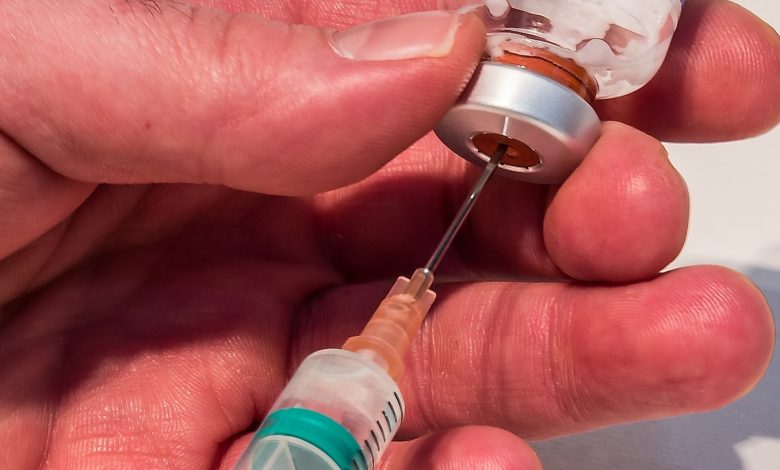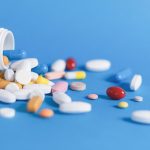Global Injectable Drug Delivery Market Projected to Reach USD 58.90 Billion by 2030

Infinium Global Research, a leading provider of market insights and analytics, has released a comprehensive report on the Global Injectable Drug Delivery Market. The report offers a detailed analysis of the market’s segments, sub-segments, and the impact of various factors, including drivers, restraints, and macro indicators, on the global and regional injectable drug delivery market over the short and long term.
The report indicates a significant growth trend, with the global injectable drug delivery market valued at USD 18.97 billion in 2022 and projected to reach a substantial USD 58.90 billion by 2030. This impressive growth is driven by a Compound Annual Growth Rate (CAGR) of 13.14% during the forecast period from 2023 to 2030.
Injectable Drug Delivery: Unlocking the Potential
Injectable drug delivery involves the direct administration of medications through needles or similar devices, offering several advantages. These include precise and controlled drug delivery to specific body areas, rapid onset of action, enhanced bioavailability, and bypassing the digestive system. A significant breakthrough in this field is the role injectable drug delivery plays in personalized medicine.
As biotechnology and pharmaceuticals advance, these systems are becoming increasingly tailored to meet the specific needs of individual patients. Personalized dosing regimens and targeted therapies, enabled by these systems, result in more effective treatments with fewer side effects. This is particularly crucial in fields like oncology, where precise drug delivery optimizes therapeutic impact while minimizing harm to healthy tissues. The development of personalized injectable drug delivery systems holds great promise for the future of medicine, offering efficient and effective treatments for various diseases and enhancing patient care.
Driving Factors and Challenges
The injectable drug delivery market is experiencing substantial growth, primarily due to the rising demand for user-friendly self-administered devices such as auto-injectors and wearable technologies. These innovations provide convenience and encourage patient compliance, making them the preferred choice for drug administration. The increased use of biologics and specialty drugs, which often require precise and controlled delivery, is a significant driver of market growth.
However, challenges related to limited patient acceptance and a preference for oral medications remain. Nonetheless, the increasing prevalence of chronic diseases and a growing aging population create significant opportunities for the injectable drug delivery market. These demographics often require extended and precise drug administration, making injectable therapies a vital and progressively expanding sector within the healthcare industry.
Regional Dominance and Growth Trends
North America, especially the United States, currently holds the largest share of the injectable drug delivery market. This dominance can be attributed to factors such as an advanced healthcare infrastructure, a robust pharmaceutical industry, high healthcare expenditure, and a growing prevalence of chronic diseases. The presence of key market players, extensive research and development activities, and a favorable regulatory environment further support market growth in North America.
The Asia-Pacific region, including countries like China, India, and Japan, stands out as the fastest-growing region in the injectable drug delivery market. Increasing healthcare awareness, a burgeoning aging population, expanding access to healthcare, and rising disposable incomes are key drivers behind this growth. As healthcare systems in these countries continue to evolve, the demand for injectable drug delivery systems increases, creating substantial opportunities for market expansion. Additionally, a shift towards biologics and specialty drugs in this region plays a pivotal role in the market’s rapid growth.
Detailed Market Segmentation
The report covers various segments of the global injectable drug delivery market, including:
1. Product Type: This segment includes self-injectors, auto-injectors, wearable injectors, insulin pens, and needle-free injectors. Auto-injectors are anticipated to hold the largest share due to their user-friendly design, offering precise and easy self-administration of medication. Auto-injectors are gaining popularity, especially for the treatment of chronic conditions like rheumatoid arthritis and multiple sclerosis.
2. Dose: The dose segment includes fixed-dose and variable-dose. Fixed-dose medications are expected to dominate the market due to their widespread use and established acceptance across various therapeutic areas.
3. Usage: This segment encompasses disposable injectors and reusable injectors. Disposable injectors are projected to hold the largest share in the market.
4. Route of Administration: The subcutaneous route is anticipated to secure the largest share.
5. Distribution Channel: Hospital pharmacies are expected to hold the largest share in distribution channels.
6. End User: Home care settings are anticipated to hold the largest share among end-user segments.
Leading Industry Players
The report profiles key companies in the market, including Antares Pharma, BD, Owen Mumford, Recipharm AB, Crossject, SHL Medical AG, West Pharmaceutical Services, Inc., Ypsomed AG, Gerresheimer AG, and E3D Elcam Drug Delivery Devices.
The global injectable drug delivery market is on a trajectory of remarkable growth, driven by advancements in personalized medicine, user-friendly delivery devices, and the increasing prevalence of chronic diseases. The market’s expansion is not limited to a single region, as both North America and the Asia-Pacific region contribute significantly to its growth. As healthcare systems and patient preferences evolve, the injectable drug delivery market remains a dynamic and promising sector within the healthcare industry.





